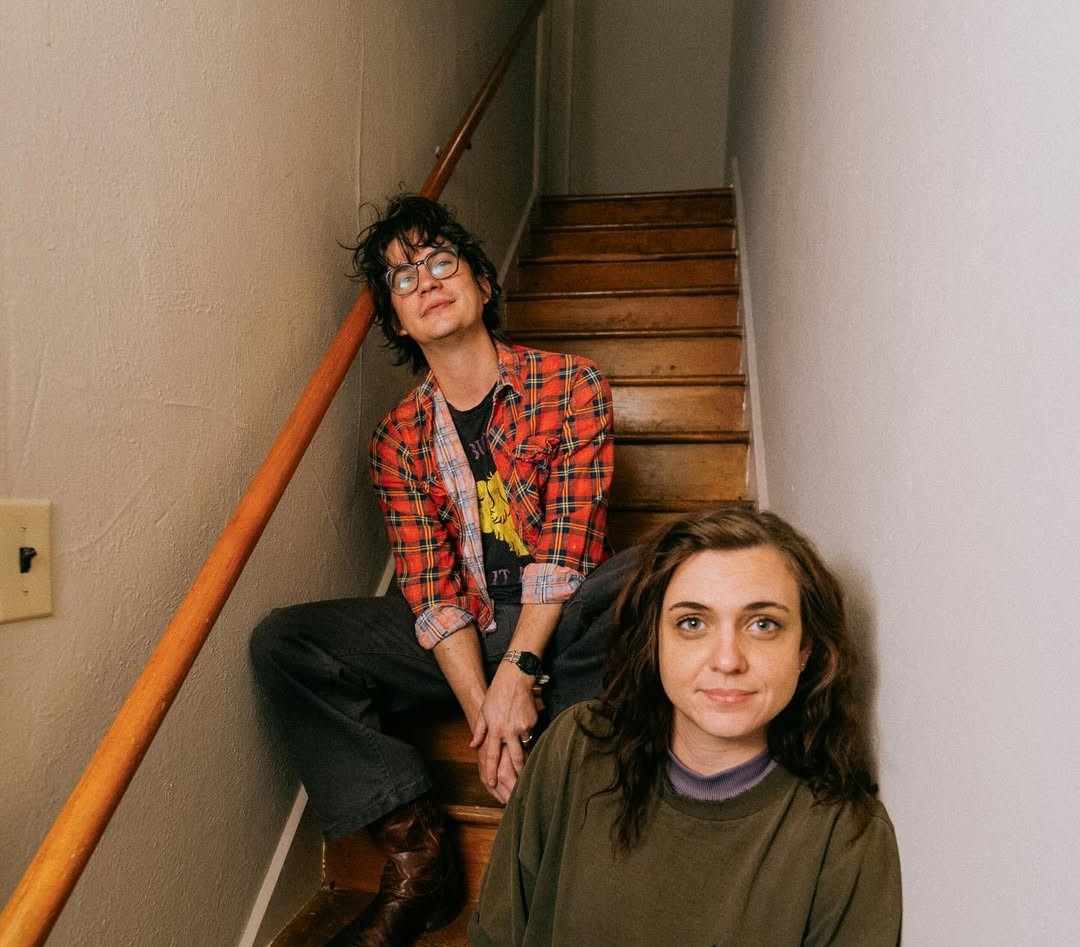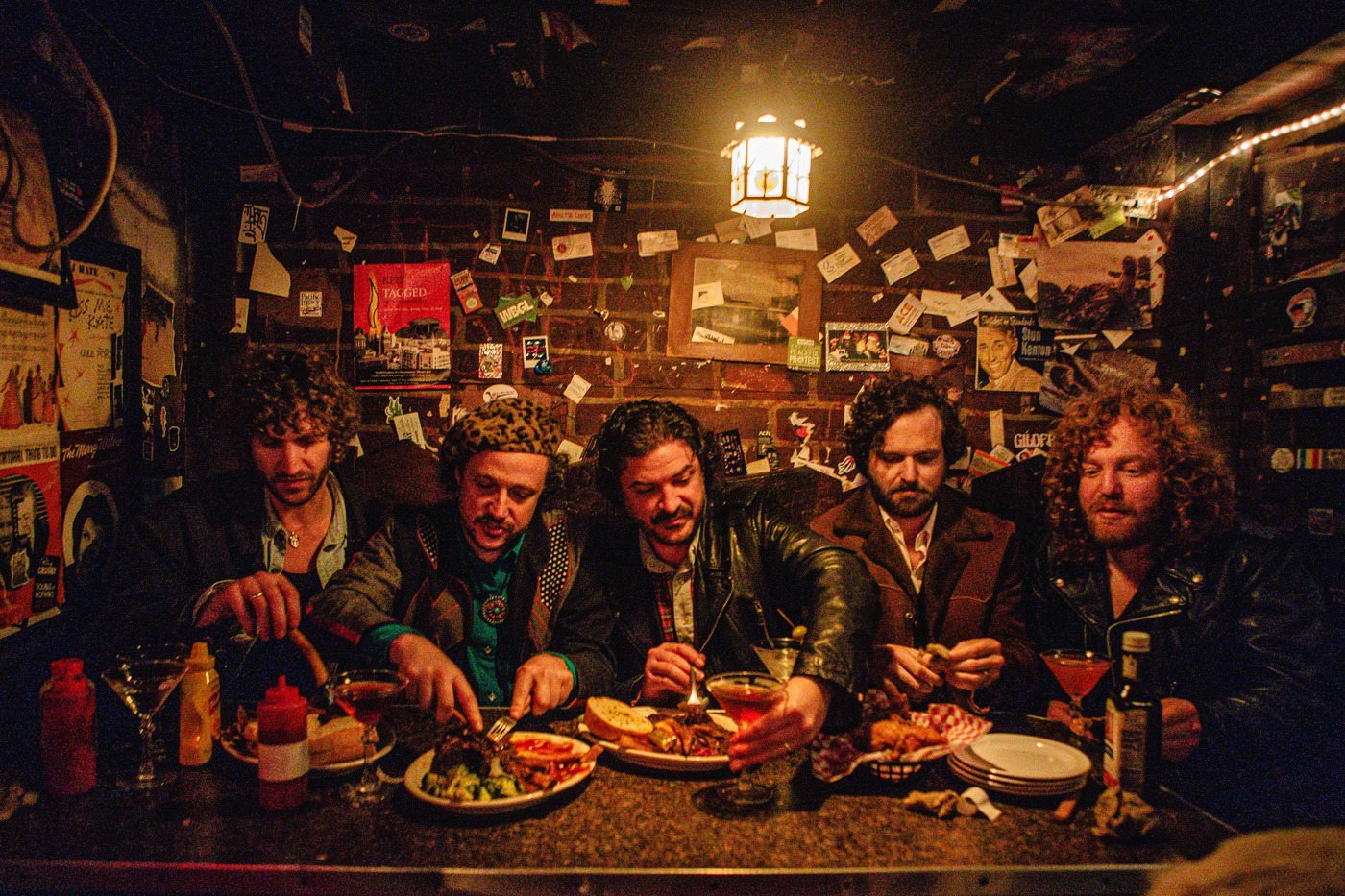Peter Fengler
“Just fist that chicken”
Vegetarians is a one-sided 7” which contains a phonatic imaginary language sounding like English.
I mainly know you from your performances, but recently bought a 7” from you. The Vegetarians. I’ve been listening to it, but I can hardly understand a word of it. Is it English or a phonatic imaginary language which sounds like English?
The last. I listened to a record of Bukka White long ago with a good friend of mine and this record stayed in my mind. Now and then it pops up like ghost visiting. The fact is that since quite some time I work with spirits and ghosts for specific occasions. A specific focus in that is on unknown and/or forgotten poets/poetry which finds its way in my performance series ‘And We Don’t Talk Like That’. This spirit of Bukka White is pretty relevant regarding the Vegetarians 7” you’re talking about, but is surrounded as well by many more voices. I do these runs directly as a lathe cut in my studio, which is to be seen as a performative situation. It is about getting in the right mood; being relaxed but sharp as a razorblade. I like this way of working in seances. Question finally is if it is an imaginary language. Vegetarians and their ideology lead to an amazing amount of incredible weird behavior, so imagine this man being somewhere and preaching his statement and experience to an unknown audience. You could say it is about romanticism. Foolish Schopenhauer etc. Nevertheless if you take it more political it is sheer realism.
Why do you do that, … releasing a single with a text you can hardly understand?
You have to understand that language is an abstract phonetic exercise anyway and that understanding is more complex than literary speaking the same language. Whatever that means of course. Most people in many cases can hear what I say and speak Dutch like I do as my native language, but do not understand what I am talking about. And vice versa. Depending the situation and or subject. Nevertheless “truly matters that known DESIGN of fine is finals did not fall..” as it is said. So Vegetarians has a meaning and understanding which goes beyond languages. That’s the core of poetry. The noise of language creates opportunities for other understanding. That is a very interesting concept which touches for instance the meaning of art or life. Sandwich spread.
What is the text? A read out poem? Or an improvisation?
As said I do cut this stuff directly by a lathe cut in my studio; it is a performative moment caught in vinyl. Seemingly improvised but in fact not, because we all knew this long before, especially when speaking with tongues. So it is poetry; a mix of ratio, concept and being open to take the right decisions on the spot in a split second. In that sense a studio situation for me does not differ from being on stage. Just fist that chicken.
The 7” comes with a text page. Is the text a written down version of the recording? Or the other way around: is the recording a read out version of the text?
The text is a written down version of the recording.
Why did you record this straight into a lathe cutter? Because you know beforehand if you do this, that the recording quality will be rather poor.
Recording is a complex business. For me recording is not about the perfect reproduction of an original. The goal of those engaged in the musical project (which includes not only composers and performers, but sound engineers, studio executives and the like) is mostly to record sound as clearly and flawlessly as possible, and to perfectly reproduce these recordings. Meaning each musical work is contrasted to the other versions of itself and the key question for the musician becomes: how faithfully can (s)he re-produce the “original” recording? Repeating, because each musical act is a repetition of what came before. In that sense music is made up of ever-more-perfect echoes of itself.
If you want to avoid that echo, you chose for transformation of (the original) information. The record or musical piece in these cases is not used as a reproductive technique. In contrast to the composer or musician who perceives the record first and foremost as a vehicle transporting his or her musical ideas, here the interest lies especially in the optical/sculptural as well as the acoustic presence, the compression and transformation of an idea, working with the playback possibilities and impossibilities. And so the defective record and not the even, smooth reproduction means quality and concept at the same time. It creates a rich quality in another sense if we understand that hi fidelity, as it was preached in the 70’s and all of these ID’s before and after, are a hoax.
As I said before, I mainly know you from your live performances, but isn’t releasing a record also a kind of act, an action, and so: some kind of performance too?
As said before; in the way I work yes definitely. Performance is not specifically audience based and it can be an object as well. Of course literally the word performance means to do something. In that sense it becomes an endless concept, because of that I would like to focus on the aspect of execution, in the sense of playing a score. Because of the fact that it happens within a certain condition of creative circumstances, which are meant to be there for the reason of creation, we could say that there is a staging.
If you release a one-sided record, with a print on the non-musical side, does a record become an art object? Do you change the function of a record by doing this?
To make an art record there needs to be much more done than just that. It can happen though, that a record becomes an art object. But this is much more complex than you just described in your question. There are many options to change the function of a record as well as to change the function of an art work. In best cases the product is a reorientation of the medium and a repositioning of the user. I don’t know if this is actually the case right now with Vegetarians although I respect Denise Typhoes, who designed the image, his graphic senses.
Is making people think about the function of art one of the main reasons for you to make art?
The function of art, the position of art and how to destabilize the idea of art is a leading force for me taking steps into that direction.
It took you about ten years or so to make this record, so there must be several ideas that didn’t make it. Can you tell me about some of the ideas that didn’t make it?
I am not so keen on recordings of performances, so I mostly work with it only in ephemeral settings. Also registration of performances is a doubtable mechanism. I think specifically in this era where almost everything is being registered and brought back to pics on the web, I tend to withdraw from it. Despite the fact that I also see the need of it (I am publishing work of other artist myself with polymorphic production stage DE PLAYER in Rotterdam). I’m still working on Chicken 1.5, CV, Baroque Non Baroque, The Stephan Bloth tapes and lots of stuff. But I’m slow and mostly not confident. Nevertheless on my own label of Utra Hobby Complex I made quite some releases, but in very limited amount, so pretty much unseen.
Why is this record dedicated to your daughter? Do you think (some of) your best work has something childish, something naïve?
Simply because my daughter Teddie is a vegetarian. She choose for it when she was 7 years old and still feels good about that. She is very serious in it and I am very serious in my work too. And the fact that some of that may appear very childish (yes indeed I can imagine), naivity is a strong power. This so called lack of experience, understanding or sophistication is related to neglecting pragmatism in favor of moral idealism. Best works come out of a certain sensibility which is connected with innocence and artlessness.
I like your performances the best when they are very simple, reduced to (almost) one idea. Because of this, do you see yourself as a conceptualist? A reductionist?
Before the ‘And We Don’t Talk Like That’ series I worked for quite some time on the ‘Baroque Non Baroque’ series which was mostly dealing with proportionism. “Can it be a bit more or less”, as the butcher says. These series are frameworks in which decisions and design take place. Doing almost nothing is an interesting position regarding cultural industries and the instrumentalisation of the arts.
http://ultrahobbycomplex.hotglue.me/
https://ultraeczema.bandcamp.com/album/vegetarians
– Joeri Bruyninckx
© Copyright http://www.psychedelicbabymag.com/2018
Array






(lol) One of the most amusing characters in music. Funny interview.